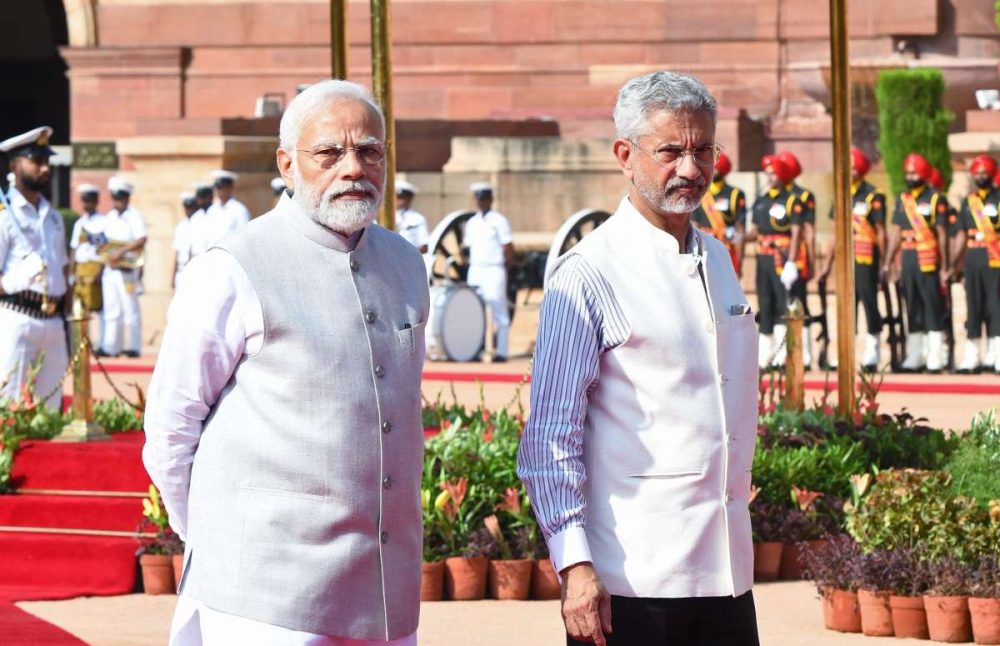The Court has also interacted with the Petitioner, and she has confirmed that this is her own personal decision, and after receiving a medical opinion from AIIMS, she is inclined to terminate her pregnancy, it added…reports Asian Lite News
The Delhi High Court on Saturday allowed a plea of a married woman seeking permission to medically terminate her 32 weeks pregnancy of abnormal foetus.
The High Court grants the permission after considering the recommendation by the medical board of AIIMS and physical-mental well-being of the petitioner woman.
Justice Sanjeev Narula allowed the petition and said, “The continuation of the pregnancy poses a significant risk to the Petitioner’s physical and mental health and is likely to result in the birth of a child with severe health issues.”
“Consequently, the Court finds it appropriate to permit the termination of the pregnancy in the best interest of both the Petitioner and the unborn foetus,” Justice Mahajan said in the order passed on July 13.
The doctors from the AIIMS Medical Board stated that they have counselled the Petitioner and her husband and explained to them the procedure and the risks involved in such late-term termination, to which the petitioner is willing to undergo the procedure, the High Court order noted.
The Court has also interacted with the Petitioner, and she has confirmed that this is her own personal decision, and after receiving a medical opinion from AIIMS, she is inclined to terminate her pregnancy, it added.
Section 3(2B) of the MTP Act permits a pregnant woman to seek termination of her pregnancy, beyond the permissible 24-week gestational age, in case the said pregnancy is found to have substantial foetal abnormalities.
The Ministry of Health and Family Welfare, Government of India, has issued guidelines dated August 14, 2017, for late-term termination of pregnancy referred to by a court of law.
The High Court said that pertinent to the present case, the guidelines classify the abnormalities of ‘Corpus callosum agenesis with additional major abnormalities’ as well as ‘Hydrocephalus over 20mm with dilation of all ventricles’ as major central nervous system abnormalities.
“Thus, having regard to the aforenoted provisions and the clear and explicit medical report, which suggests substantial foetal abnormalities, the Court is inclined to accept Petitioner’s request,” the bench said in the order.
Moreover, given the scheme of the MTP Act, particularly of Section 3(3), in arriving at the ultimate decision in such cases, the Court must also recognise and give due weightage to the choice of the mother and her foreseeable environment, as well as the possibility of a dignified life for the unborn child, the bench further said.
A married woman of 31 years of age had moved to Delhi High Court seeking permission to medically terminate 32 weeks of pregnancy having an abnormal foetus.
The High Court had called for a report from the All India Institute of Medical Sciences (AIIMS).
Petitioner’s counsel, Amit Mishra had submitted that the foetus has abnormalities. It was revealed on July 4 after the petitioner underwent an ultrasound test. He also submitted that the petitioner took the opinion from four other labs, and the results were the same.
Considering the advanced stage of pregnancy, the bench directed AIIMS to file a medical report by July 13.
Petitioner had approached the court after she was advised by the doctors to get the permission of the court for medical termination of pregnancy, as it was beyond the permissible duration under the Medical Termination of Pregnancy Act. (ANI)
ALSO READ-New Delhi’s Green Mobility Boost for Rural Women Self-Help Groups








